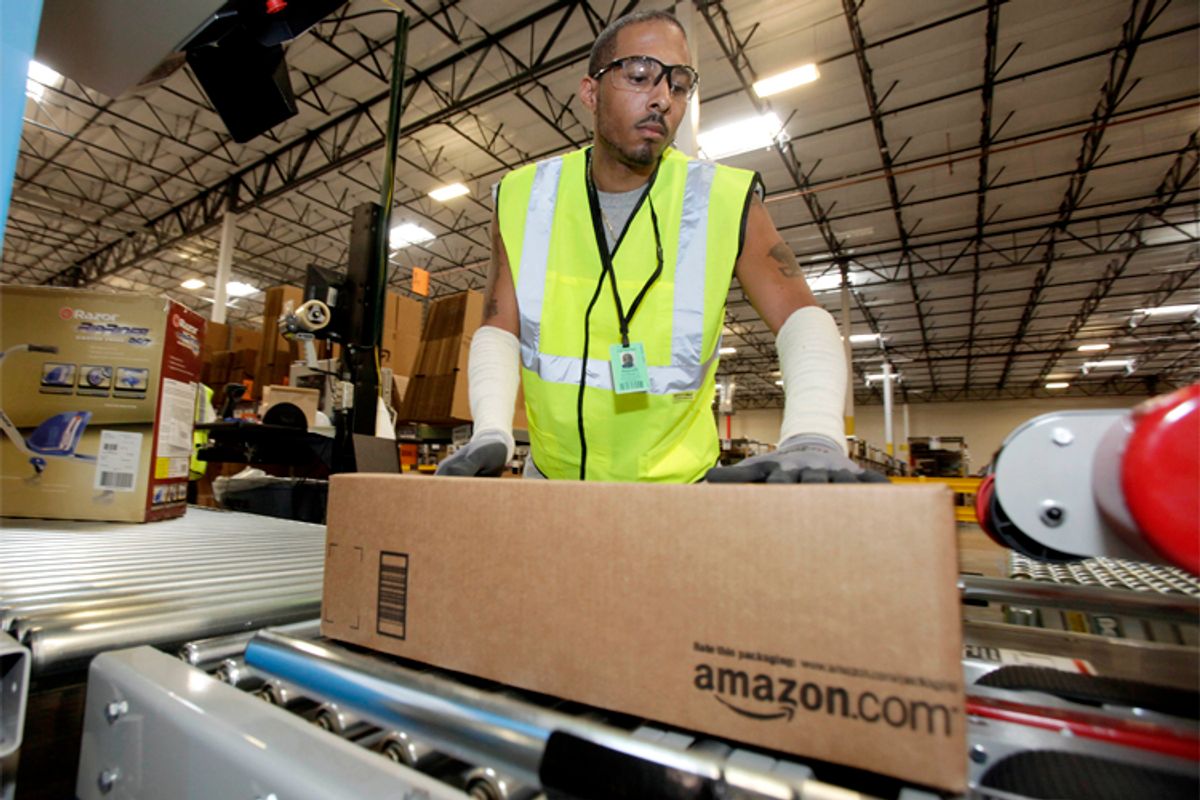Amazon’s soaring stock this year has granted Jeff Bezos a title of a lifetime: the richest man in the world. Some claim that he’s the richest man in history.
While that’s debatable, Bezos is a very wealthy man and is likely to only going to get wealthier.
According to Bloomberg’s billionaire tracker, Bezos’ total net worth is $105 billion. This week alone, CNN reports he’s added $1.4 billion to his fortune; Amazon stock increased 1.4 percent on Monday and Bezos reportedly own 78.9 million shares. Market forecasters have publicly predicted that they don’t foresee a downward trend for Amazon in the near future.
It’s worth noting that Bill Gates would still likely be wealthier than Bezos now if he didn’t donate much of his wealth to charity.
The richest man in the world doesn’t become the richest man in the world without a little help, though. In Bezos’s case, his help is thousands of workers at fulfillment centers who are reportedly subjected to grueling work conditions— workers who are vital to Amazon’s success; ensuring Amazon’s picking, packaging and sorting. A new study by Policy Matters Ohio showed that more than 700 Amazon workers receive food stamps in Ohio — yet, Amazon has reportedly received an estimated $123 million in tax breaks in Ohio. That means that American taxpayers are subsidizing Bezos's fortune, as Amazon isn't paying a living wage to many workers.
Amazon has faced multiple labor lawsuits and complaints in the last few years. In 2011, The Morning Call, the newspaper of record for Allentown, Pennsylvania, published an article about what it was like to work at the local Amazon warehouse. According to the report, the Allentown factory allegedly reached a heat index of 102 degrees, and said that 15 workers collapsed because of the heat. In the report, Elmer Goris, who worked at the warehouse in Lehigh Valley, Pennsylvania, told The Morning Call, “I never felt like passing out in a warehouse and I never felt treated like a piece of crap in any other warehouse but this one.”
In 2015, three plaintiffs filed a lawsuit against Amazon alleging wage and hour violations in the company’s San Bernardino, California, warehouse. According to the report, workers were allegedly required to participate in individual security searches each day that cost 20 to 30 minutes of unpaid work. In 2017, workers at the Sacramento, Calif., fulfillment center also filed a class-action lawsuit. They alleged that they had also been denied rest breaks and overtime pay.
As Simon Head, author of Mindless: Why Smarter Machines Are Making Dumber Humans wrote in Salon, Amazon’s warehouse work conditions are comparable to those at Walmart.
Head wrote:
As at Walmart, Amazon achieves this with a regime of workplace pressure, in which targets for the unpacking, movement, and repackaging of goods are relentlessly increased to levels where employees have to struggle to meet their targets and where older and less dextrous employees will begin to fail. As at Walmart, there is a pervasive “three strikes and you’re out” culture, and when these marginal employees acquire too many demerits (“points”), they are fired.

Shares